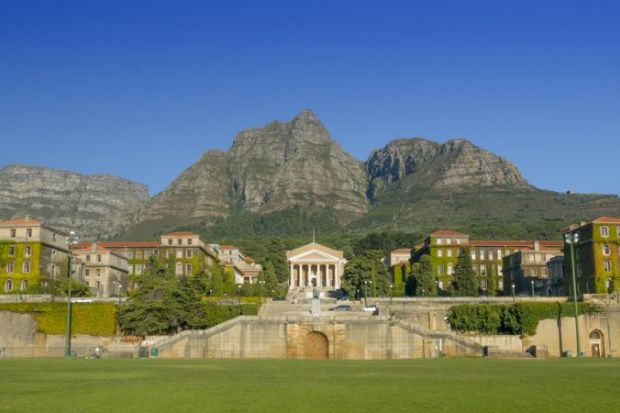The chair of the University of Cape Town (UCT) council has resigned after a heavily critical report accused her of posing a “serious risk to the university”.
Babalwa Ngonyama handed in her resignation last week, preempting the results of an investigation she said was unfair. The council has now accepted she should stand down after agreeing with many of the findings of the panel led by former Supreme Court of Appeal president Lex Mpati.
The inquiry centred around Ms Ngonyama’s actions towards former deputy vice-chancellor Lis Lange during a period in which former vice-chancellor Mamokgethi Phakeng also stepped down.
According to the report, Ms Ngonyama embarked on a strategy to terminate Professor Lange’s contract prematurely – and renew Professor Phakeng’s term for a further five years – acting without the authority of the council.
It accuses Ms Ngonyama of lying to the council that Professor Lange had been abusive towards her, and had insisted on being appointed vice-chancellor.
“Council views these findings in serious light and agrees with the panel that Ms Ngonyama’s continued presence as CoC poses a serious risk to the university,” the UCT Council said in a statement.
The report also said Ms Ngonyama forced senior HR representatives out of a key meeting regarding Professor Lange’s contract, and on another occasion did not recuse herself when her conduct was being discussed.
Instead, she remained in the meeting and took part in voting against a proposal to establish an independent investigation into the issue, said the panel.
It said Ms Ngonyama had ample opportunity to respond to the allegations against her, but did not do so.
And it rejected accusations by the former chair that the investigation was unfair to her and that it had no legal authority.
In a statement last week, Ms Ngonyama said she had not been not allowed to cross-examine those making allegations against her, nor respond properly to their claims – which “conflicts with a basic tenet of procedural fairness”.
She also said that she has asked the Western Cape High Court to look at the fairness of the process.
Ms Ngonyama said she resigned to let the university’s academic project continue, but that she would be dealing with the matter outside council through “available legal mechanisms.” THE has contacted her for further comment.
Professor Phakeng stepped down from her role in charge of the university at the end of February, while the investigation was still ongoing.
She previously told Times Higher Education that she wanted the investigation to be made public and live-streamed to ensure that “the real story is not mediated by biased media”.
Following her early retirement as vice-chancellor Professor Phakeng was due to stay on as a professor until March next year – but UCT announced recently that she took early retirement from that role in April as well.
Emeritus Professor Daya Reddy is currently filling in as interim vice-chancellor of Africa’s number one-ranked institution.




